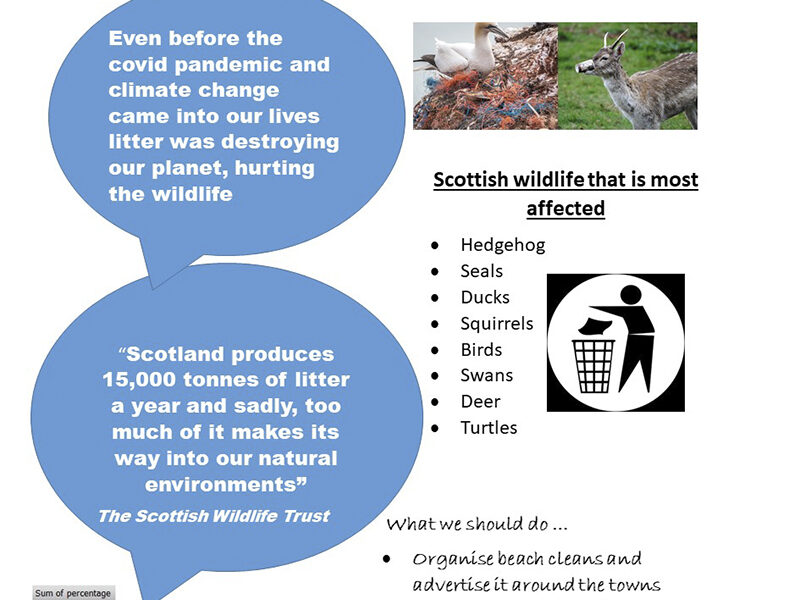Dr Fiona Hutchison

Social Prescribing is a term used for connecting people to non-medical sources of support or resources to improve their health and well being, often through a link worker.
The Social Prescribing Network operating in England explains its appeal: ‘it is an innovative and growing movement, with the potential to reduce the financial burden on the NHS and particularly on primary care.’
Before Covid, social prescribing attracted interest, efforts and project funding. The pandemic has arguably created increased supply and demand; more need for knowledge exchange and rising calls for collaborations to benefit people’s lives.

Demand is summed up well by Royal Society of Edinburgh’s Post-Covid-19 Futures Commission:
‘The coronavirus pandemic has wide-ranging and far-reaching implications, well beyond the impact of the disease itself, that will significantly affect society for a considerable time to come. It is probably the most challenging time many of us have ever experienced. Individuals, organisations, and communities are dealing with huge amounts of disruption, uncertainty, anxiety and loss.’
Looking at supply, consumable experiences and activities are created by a whole range of private, public and third sector organisations, including volunteer-run organisations. Experiences suitable to prescribe range from nature-based, sport and exercise, to arts and culture. Due to the pandemic many providers within the ‘experience economy’ have paused operations and lost business. Going forward they are working to find innovative approaches to sustain themselves, support employment and help wider society.
Even with increased appetite, there is still much work to do matching supply and demand. Gozde Ozakinci, Health Psychologist at St Andrews University explains:
‘While social prescribing relies on the core role that a link worker provides to reduce the burden on primary care and other professionals, this is heavily dependent on local funding. However, it is crucial that we explore all the ways that healthcare professionals can connect the individuals that they care for, to the activities and support systems available in the local communities with or without the support of a link worker.’
Knowledge exchange is necessary because there is mixed evidence that social prescribing can lead to a range of positive health and wellbeing outcomes for people, such as improved quality of life and emotional wellbeing. As part of the Post-Covid-19 Futures Commission’s work, the RSE has commissioned research aiming to better understand the role of social prescribing – citizen-centred approaches to wellbeing – that exist in Scotland and how this could be improved and expanded in the future.

YAS is responding to rising calls for collaboration from diverse stakeholders involved in existing and future social prescribing initiatives. Scottish Parliament’s Health and Sport Committee previously undertook a short enquiry to consider social prescribing’s ability to tackle physical and mental wellbeing issues. The current policy backdrop provides a key opportunity for coming together on tangible outcomes. Jo Buckley, Chief Executive for the Dunedin Consort reflects:
‘In Scotland we already have an overarching Culture Strategy, and strategies for the historic environment sector and our museums. The 2020 Programme for Government brought attention to Anchor Organisations and Twenty Minute Neighbourhoods. We think social prescribing is worth serious attention in supporting strategic recovery efforts.’

Several of YAS’ new 2020 cohort are at the forefront of forming a Scottish-based collective to:
- Connect the Scottish community of health care professionals, academics from various disciplines, the third sector, volunteers in the third sector, and policy makers
- Develop a strong research and practitioner-based agenda
- Share the knowledge gained from these collaborations in ways that are accessible to all sectors and public to impact on policies and practice.
Margaret Cunnigham, YAS’ strategic lead for talking health and wellbeing challenges explained:
‘My lived experience of looking beyond clinical solutions meant I was excited by this idea from the outset. I also bring my professional experience in pharmacology to the table. In fact, the beauty of YAS is how we blend perspectives and support positive change for Scotland.’
YAS are organising an event for early summer to forge our collective ambition for the future of social prescribing in Scotland. Please look out for our announcements on @YoungAcademySco and in the meantime happy #SocialPrescribingDay 2021!


